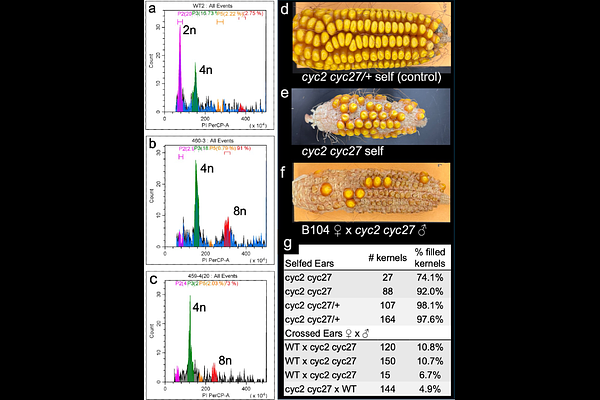Diploid gametes in maize by mutation of A-Type cyclins: a step towards apomeiosis and synthetic apomixis.

Diploid gametes in maize by mutation of A-Type cyclins: a step towards apomeiosis and synthetic apomixis.
Skinner, D. J.; Gaikwad, A. H.; Fenner, J. A.; Green, J.; Cho, M.-J.; Kelliher, T.; Sundaresan, V.
AbstractHybrid crops are agriculturally desirable due to heterosis but are costly or difficult to produce. Synthetic apomixis, clonal reproduction through seed, offers the ability to fix hybrid vigor. Two components are needed to achieve this goal: the formation of diploid gametes identical to the maternal parent through apomeiosis, and the induction of embryogenesis in the egg cell without fertilization, known as parthenogenesis. In maize, parthenogenesis was achieved by egg cell expression of the transcription factor ZmBABY BOOM 1 but a viable apomeiosis strategy has not been reported. In the MiMe (Mitosis instead of Meiosis) system, in addition to mutants that skip recombination and sister chromatid adhesion, mutation of genes involved in cell cycle control during meiosis is needed to skip the second division and ensure diploid gametes. In this report we describe the effect of mutation of maize A-type cyclin genes with similarity to Arabidopsis TARDY ASYNCHRONOUS MEIOSIS (TAM). In double mutant plants, we find that diploid gametes are formed with high efficiency and that the progeny are tetraploid. These genes provide a viable route towards creating synthetic apomixis in maize.